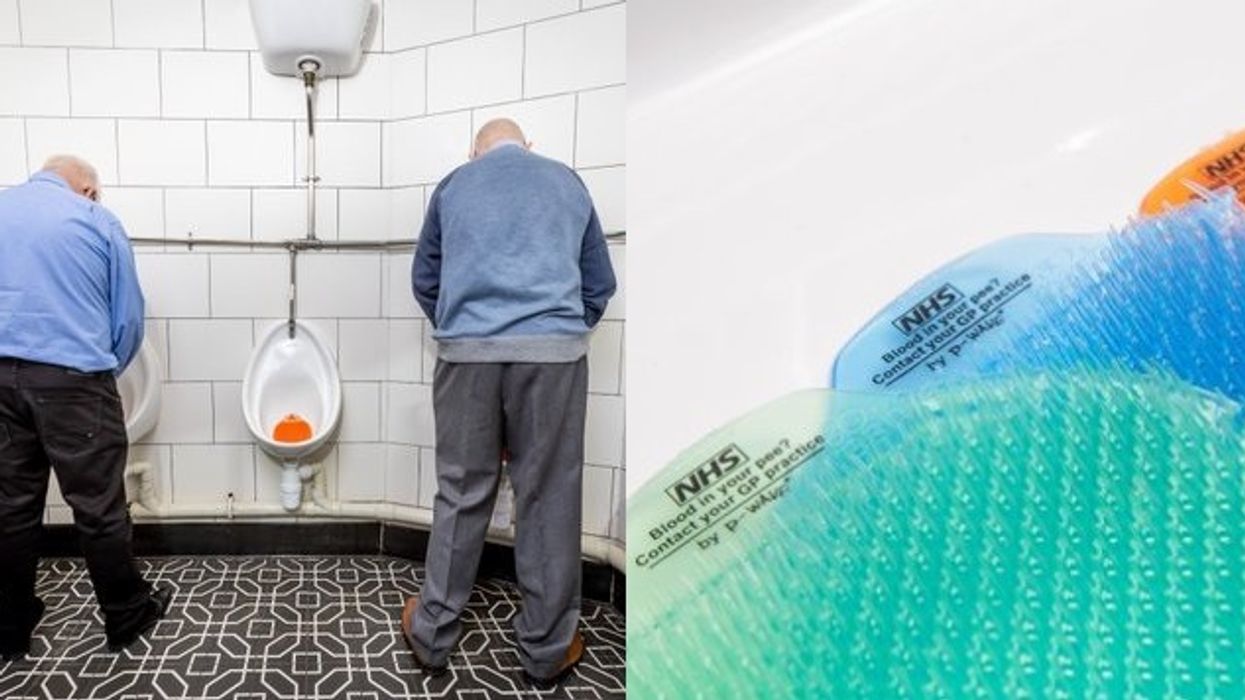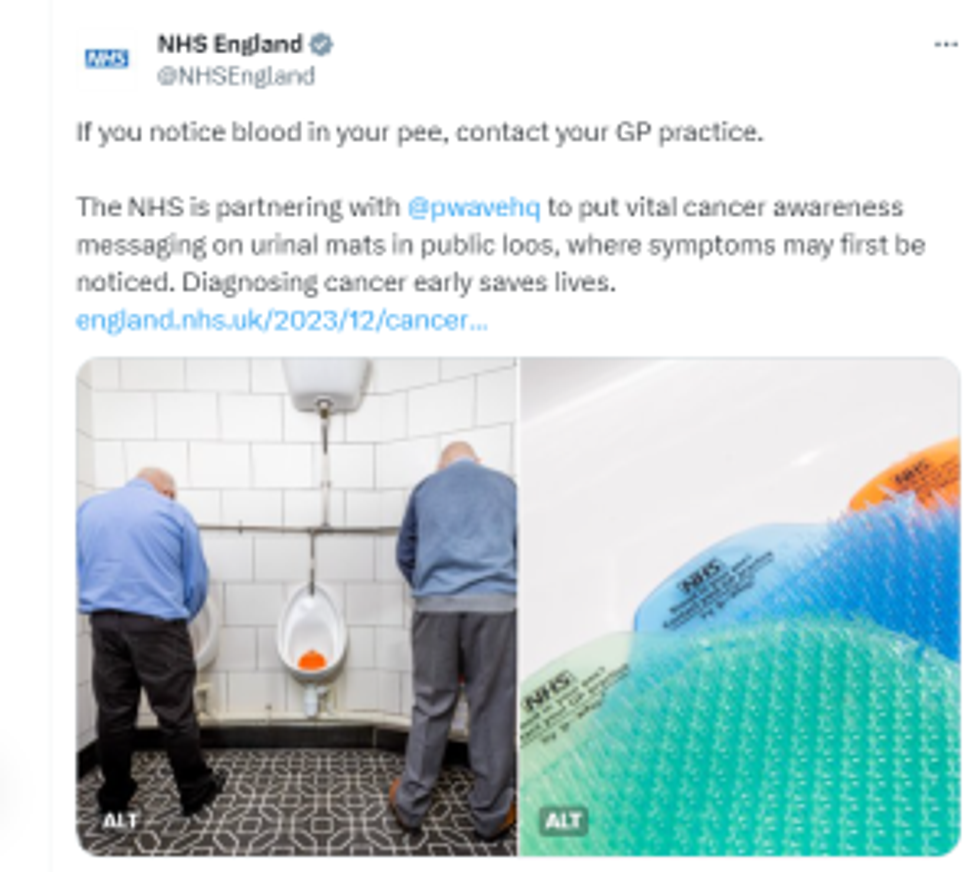Nearly half of men surveyed thought blood in pee was not a symptom of cancer
The UK's National Health Service (NHS) has partnered with P-Wave, a urinal products brand, to put cancer warnings for men on urinal mats in public places across England, as part of its new earlier diagnosis drive.
Urinal mats in pubs, restaurants, shops, hotels and sports stadiums will begin to carry the message “Blood in your pee? Contact your GP practice”, and men’s toilets in workplaces will also be targeted, the NHS said.
Health chiefs believe that this unique initiative will help men to spot the signs of cancer such as blood in pee, and catch the disease early.
“Having blood in your pee – even just once – shouldn’t be ignored because it can be a sign of cancer, so it needs to be checked out by your GP team,” said Professor Peter Johnson, NHS England National Clinical Director for Cancer.
“Cancer survival is at an all-time high, and we’re seeing more cancers than ever before being picked up at an early stage – and this partnership with P-wave is just one of the many ways we are helping people to be aware of possible cancer symptoms,” he added.
It is easier to treat can when diagnosed early, the NHS noted while urging people to be aware of changes in their bodies.
Passing blood in pee is a common symptom for bladder, kidney and prostate cancers, which are among the 10 most prevalent cancers in England, and they generally affect men more than women.
Other common symptoms associated with these cancers include peeing very often, sudden urges to pee or a burning sensation when you pee, difficulty peeing, a lump or swelling in your back, under your ribs, or in your neck, or pain in the side between the ribs and the hip.
Dave Carson, P-Wave Managing Director, commented: “We are proud to be working with NHS England on this first-of-its-kind partnership, which offers a creative yet simple way to convey a potentially life-saving cancer awareness message.
“We are delighted that through our P-Wave urinal mats, we can encourage people to check for blood in their pee and to contact their GP practice if they spot it and are excited to share these with our customers and play a part in helping spread this important message.”
The NHSE came up with the cancer catching drive after a survey found that nearly half of men thought blood in pee was not a symptom of cancer.
In the survey, two-fifths (39 per cent) of men said they would wait until they’ve noticed blood in their pee multiple times before seeing a GP.
Further it revealed that over half of men in England use a public urinal at least once a week, and the majority of men surveyed said they would be more likely to contact their GP practice if they saw messaging on a urinal mat and were experiencing blood in their pee.
The NHS has taken up various initiatives, including community lung health checks, to achieve its goal of diagnosing three quarters of all cancers at stage one or two by 2028.
Nearly three million people received lifesaving checks for cancer last year, which was more than any other year on record, the NHS revealed.














